About Rapunzel News
Rapunzel rice supplier Tapan Ray explains the benefits for the environment and the people
Basmati rice from India
Rapunzel rice supplier Tapan Ray explains the benefits for the environment and the people
For many years, Tapan Ray has been promoting organic rice cultivation in his home country and has performed important development work. He convinces and motivates farmers in the Himalayan foothills to convert to organic agriculture. For the farmers, organic farming brings many advantages: in addition to fair prices, they get competent advice that improves their yields and their family income.
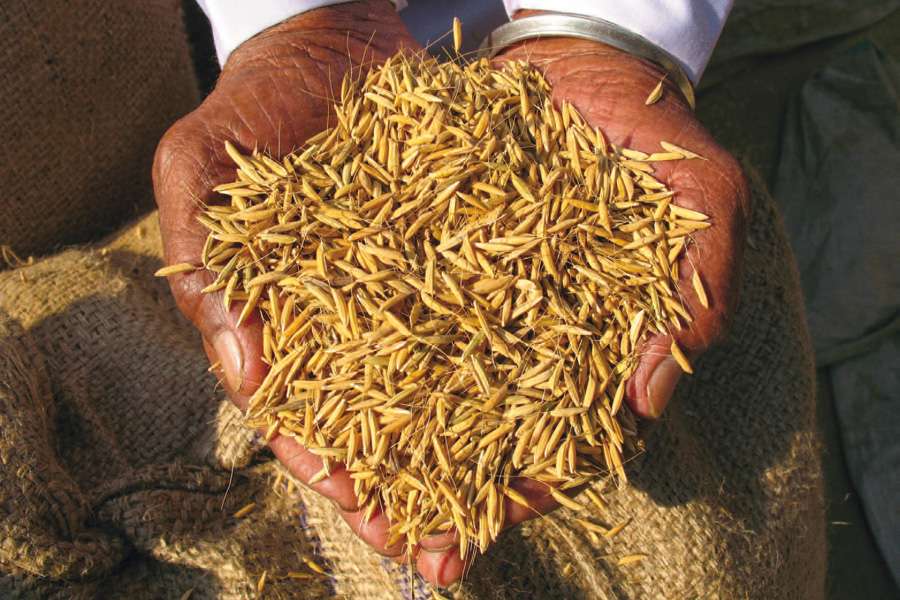
Rice is one of the oldest and most important staple foods. Today, however, rice has a tarnished reputation: cultivated in paddies, rice is one of the greatest methane greenhouse gas emitters. But there are alternatives: when grown with modern, organic methods, the emissions decrease significantly - while the soil is provided at the same time with important nutrients.
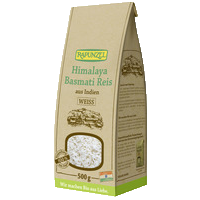
Himalaya Basmati rice white
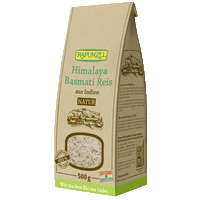
Himalaya Basmati rice brown wholemeal
Organic versus conventional rice cultivation
Organic cultivation as part of a greater sustainable agricultural concept protects people and nature, because air, water and soil are protected against pesticide contamination.
Compared to conventional agriculture, organic farmers sow organic, traditional and domestic rice varieties such as Dehradun type 3. On their 1.5 to 2 hectare big fields they do everything manually - from the sowing all the way to the harvest. Also the threshing of the panicles and the packing of the rice into sacks is done by hand.
Compared to conventional agriculture, organic farmers sow organic, traditional and domestic rice varieties such as Dehradun type 3. On their 1.5 to 2 hectare big fields they do everything manually - from the sowing all the way to the harvest. Also the threshing of the panicles and the packing of the rice into sacks is done by hand.
Green manure, compost and home-made herbal extracts protect the plants and promote soil fertility. Through the manual tilling of the fields, the farmers obtain stable yields and a balanced microbial environment in the soil. Compared to conventional rice farming, organic farmers do not burn harvest residues. All these measures make farming more elaborate - but contribute over the long term to a better and healthier soil for rice and other crops.
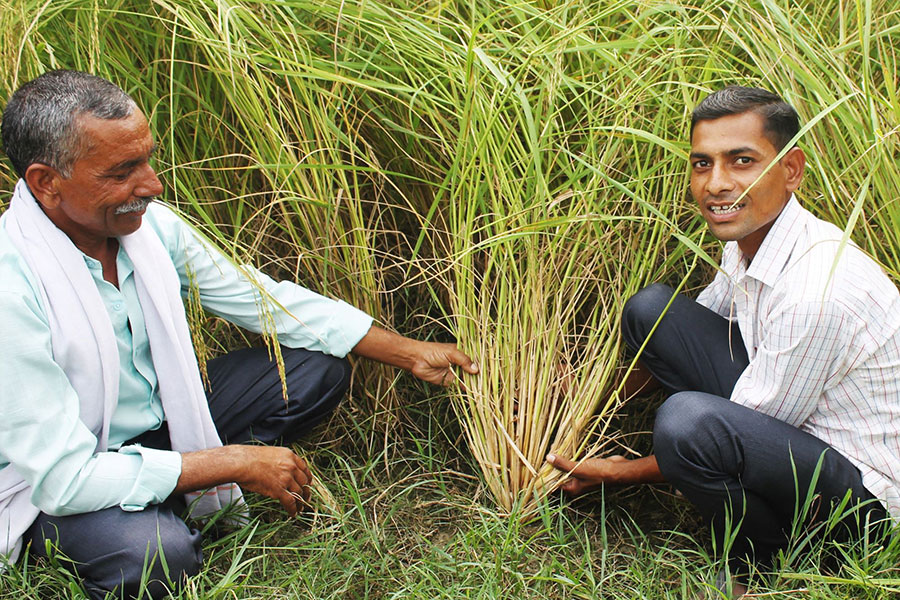
Organic farmers proudly present their healthy plants
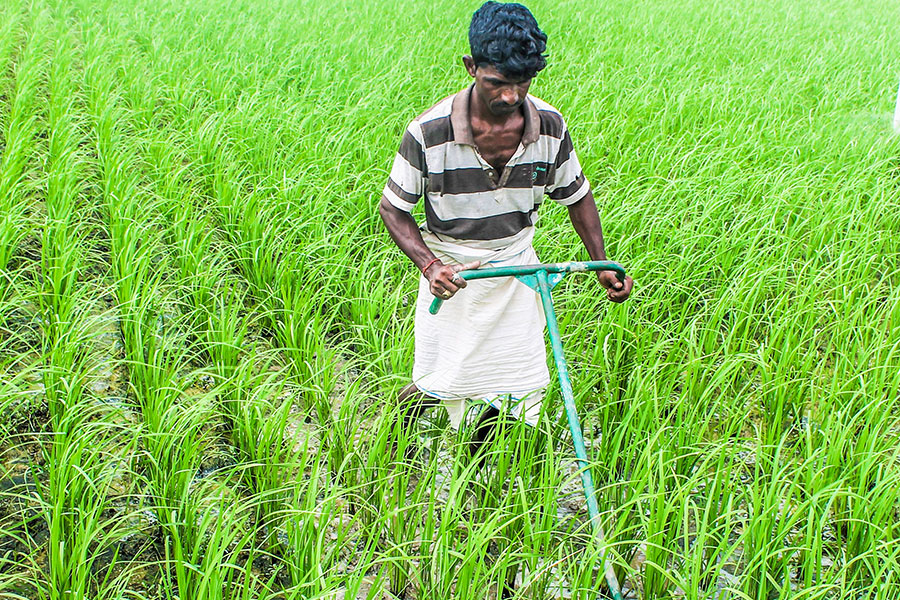
Aromatic Basmati rice is produced with lots of manual labor
Organic agriculture guarantees
- the reduction of greenhouse gases in rice cultivation
- the conservation of resources due to targeted irrigation compared to permanent flooding of the fields
- healthy growth and robust plants
- the maintenance of soil health, a healthy environment and clean drinking water
- training in organic cultivation and animal husbandry
- a secure income and higher yields for the farmers
Tapan Ray - partner at eye level
Tapan Ray has been working for organic farming, organic rice production, the trading and marketing of rice since 23 years. But also the farmers' wellbeing including that of their children are important to him. For him, the rice farmers are partners at eye level.
Together with the organic farmers, he plans seed rates and advises them continuously - from the sowing to the harvest. Thus the organic rice farmers get a fair and reliable income and planning security.
Together with the organic farmers, he plans seed rates and advises them continuously - from the sowing to the harvest. Thus the organic rice farmers get a fair and reliable income and planning security.
Most organic farmers are self-employed and they own their land and their farms. That way they will not get caught in financial difficulties caused by rental payments, intermediate traders or the purchase of pesticides and synthetic fertilizers.
The situation differs for conventional farmers: due to intensive farming they have high expenses for agricultural chemicals. On top, they often have to cope with crop failure caused by incorrect use of pesticides or the cultivation of monocultures.
The situation differs for conventional farmers: due to intensive farming they have high expenses for agricultural chemicals. On top, they often have to cope with crop failure caused by incorrect use of pesticides or the cultivation of monocultures.
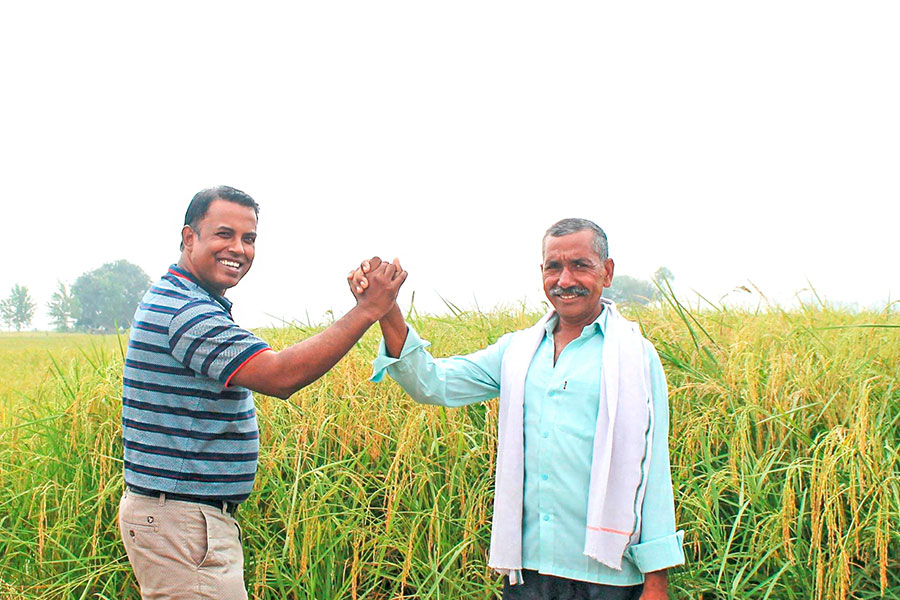
Fair partnership: Tapan Ray and rice farmer Prem Pal
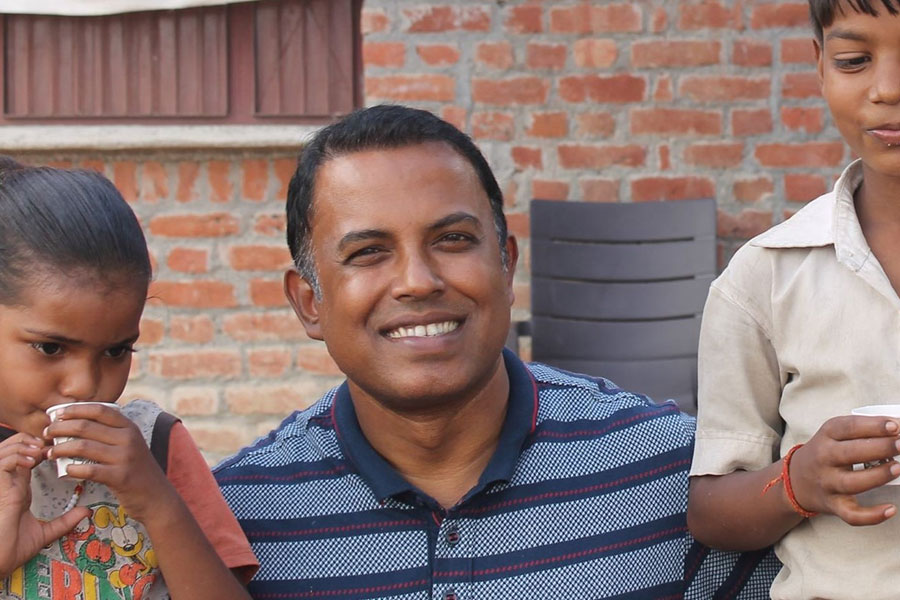
Tapan Ray promotes fairness and social responsibility
Tapan Ray adheres to the German social standard concept that also includes benefits for the children of the farmers' families. This includes support for local schools, the provision of clean drinking water or the availability of sanitary facilities.
Computer training is provided to the children, girls get access to vocational education in sewing, dressmaking and handcrafts such as fabric manufacture or embroidery.
Families are supplied with pressure cookers in order to reduce the use of fire wood.
Computer training is provided to the children, girls get access to vocational education in sewing, dressmaking and handcrafts such as fabric manufacture or embroidery.
Families are supplied with pressure cookers in order to reduce the use of fire wood.
Thus, the families protect valuable wood resources and avoid smoke from wood fires that often has negative health effects.
In addition, Tapan Ray also organizes trainings on organic farming and animal husbandry. All these measures strengthen organic, rural communities, because they promote the confidence in organic agriculture, secure a permanent income and a better future for the children. Especially the children profit from education and health care benefits.
In addition, Tapan Ray also organizes trainings on organic farming and animal husbandry. All these measures strengthen organic, rural communities, because they promote the confidence in organic agriculture, secure a permanent income and a better future for the children. Especially the children profit from education and health care benefits.
Recipes with Basmati rice

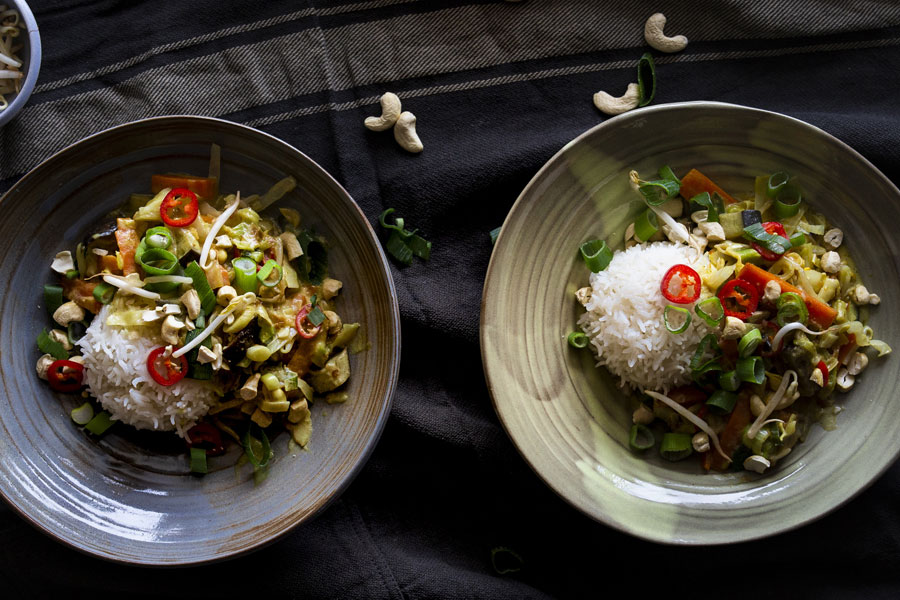
Asian wok with curry -coconut- peanut sauce and basmati rice

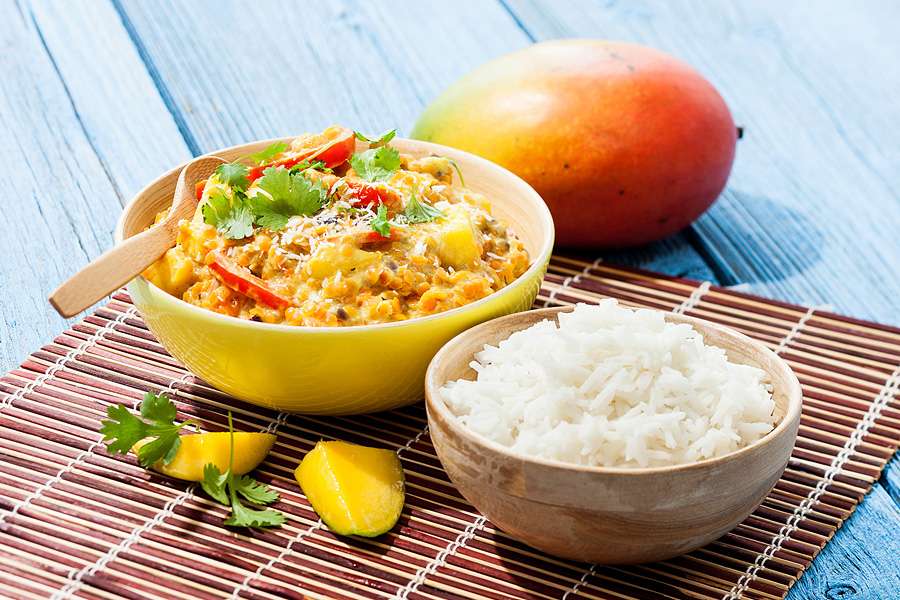
Mango Coconut Curry

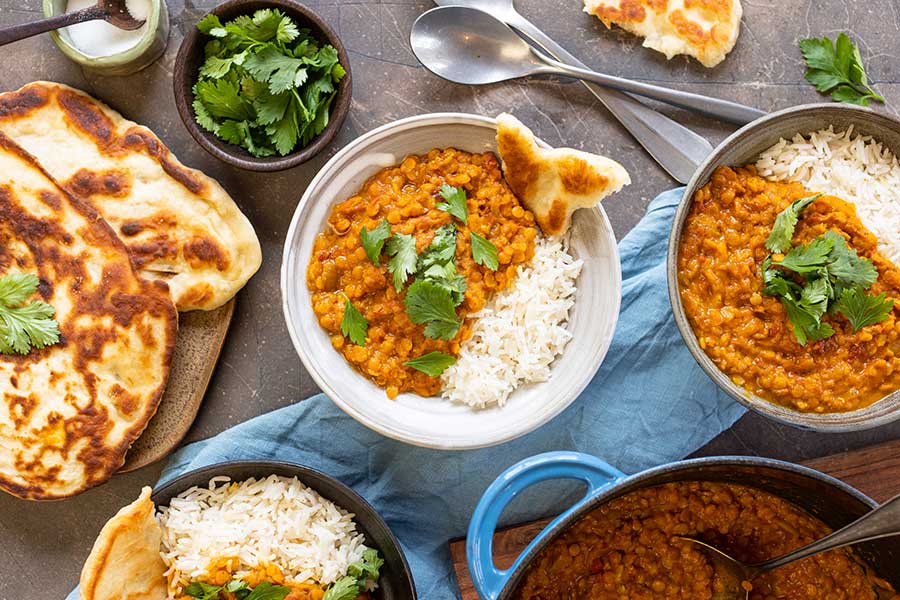
Warm Lentil Dal with Naan and Rice

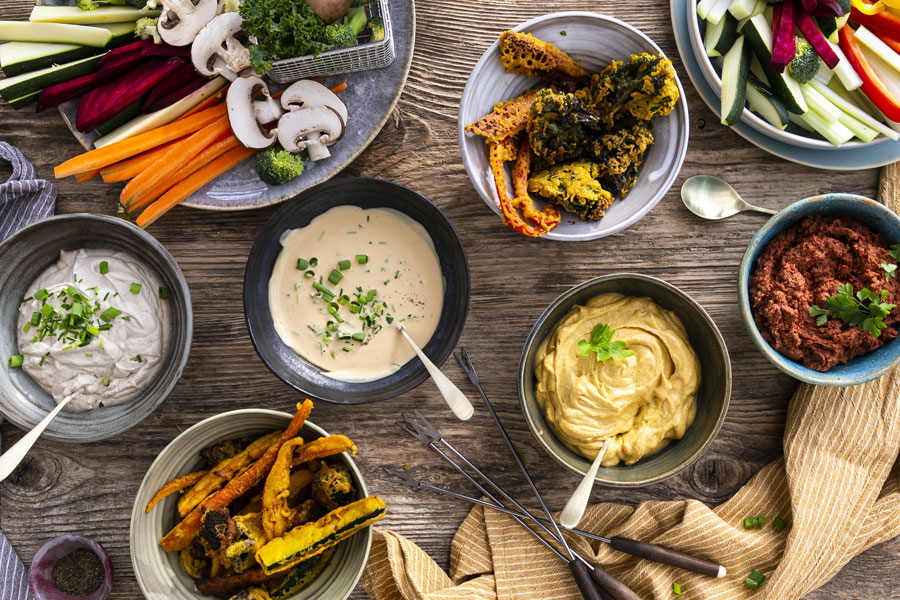
Fondue with vegetable bouillon
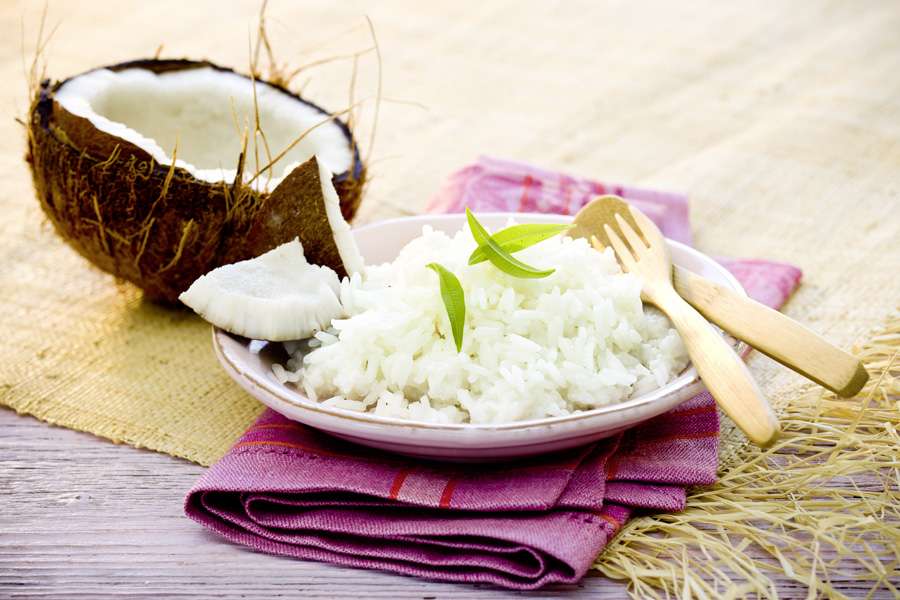
Coconut rice

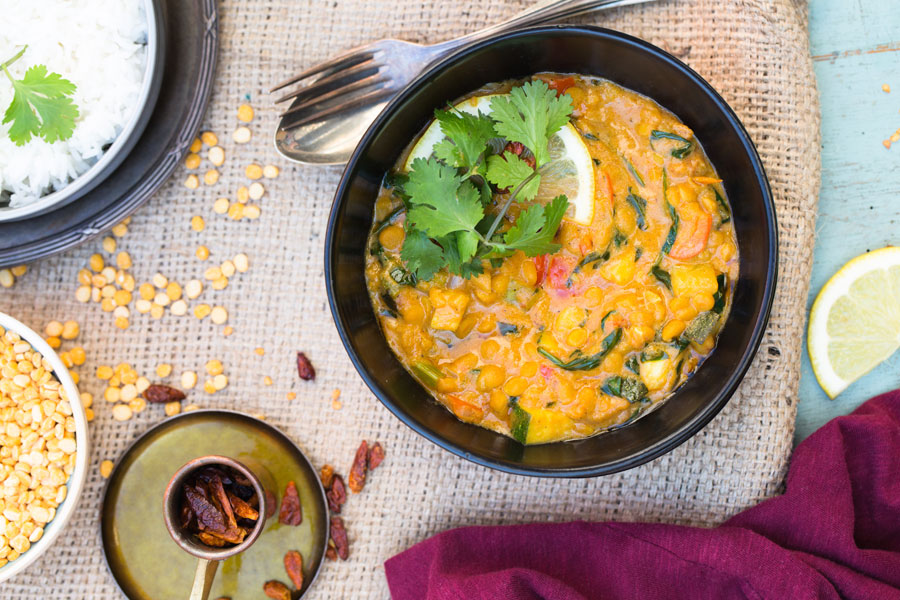
Chana Dal
